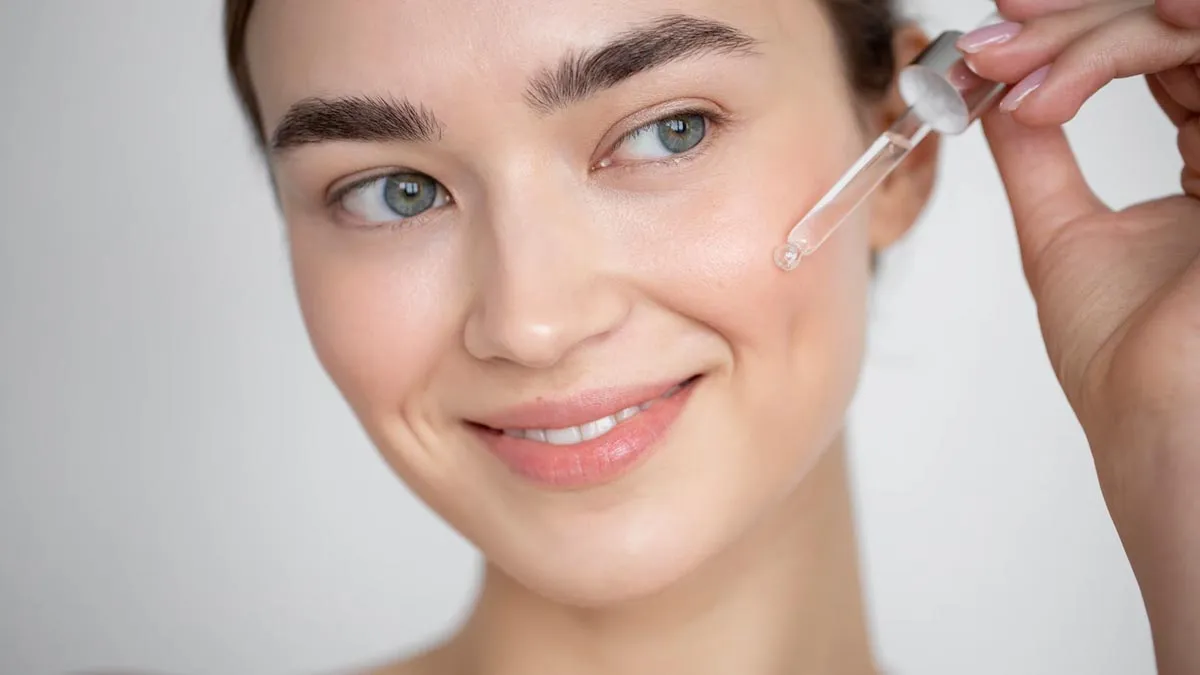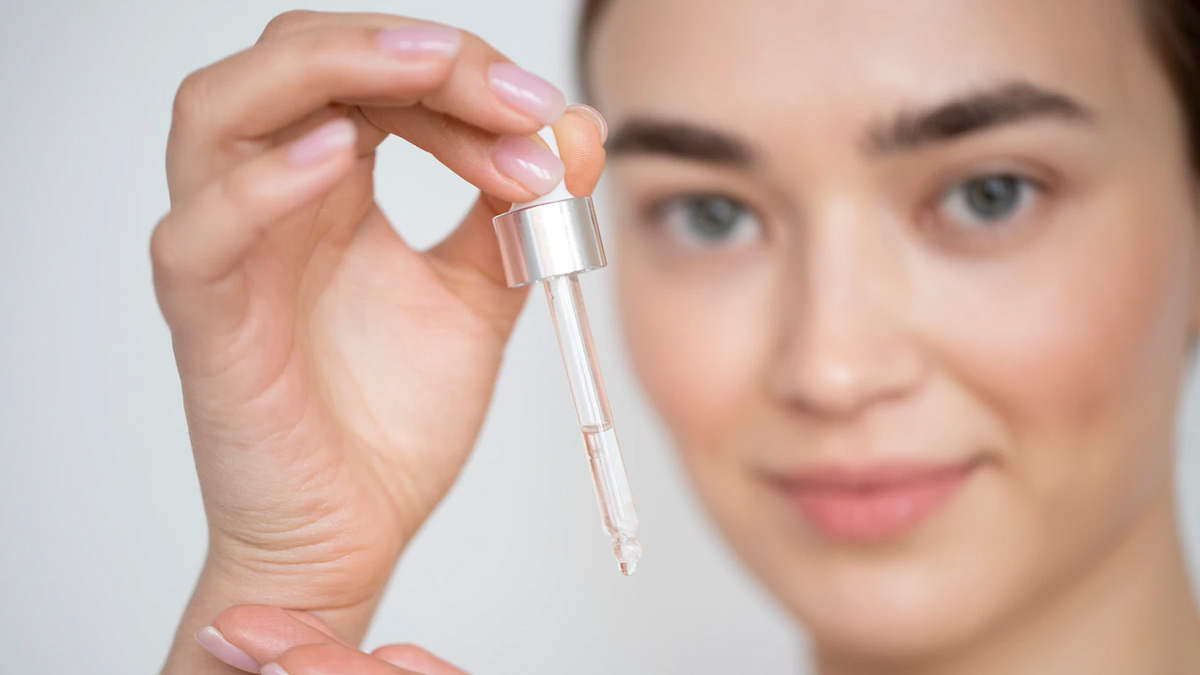
Vitamin C serums are now a staple in most skincare regimens, prized for their brightening effects, antioxidant properties, and collagen-stimulating abilities. But for a few, the quest for glowing skin can have an unintended consequence: dryness on the sensitive corners of the eyes and mouth. If you've been baffled by such dryness since using a vitamin C serum, you're not the only one.
Table of Content:-
In an exclusive interaction with the editorial team of Onlymyhealth, our expert, Dr. Sanjeev Gulati, Dermatologist, Department of Dermatology, Sharda Hospital - Noida, explained the possible reasons for this phenomenon and how to tackle it for a healthier, happier complexion. Here is everything you need to know!
Why Dryness Happens
The skin around the eyes and mouth is inherently thinner and more sensitive than other areas of the face. This makes it more susceptible to irritation and moisture loss. When introducing a potent active ingredient like vitamin C, several factors can contribute to dryness in these vulnerable zones:
Concentration and Form of Vitamin C
High Concentrations: Though higher concentrations of L-ascorbic acid (vitamin C's strongest formulation) can yield dramatic results, they are also more likely to irritate, particularly for sensitive skin. Serums containing 15% or 20% vitamin C may be too harsh for the fragile eye and mouth zones.
Unstable Forms: Certain forms of vitamin C are more stable and less irritating than others. L-ascorbic acid, though effective, may be acidic. Derivatives such as sodium ascorbyl phosphate or magnesium ascorbyl phosphate tend to be gentler.
Product Formulation and pH Level
Acidity: For vitamin C to be effective, particularly L-ascorbic acid, it usually must be formulated at a low pH (acidic). Such acidity may compromise the natural barrier of the skin, causing transepidermal water loss (TEWL) and dryness. The fragile skin surrounding the eyes and mouth has a less stable barrier and is therefore at greater risk of such pH disruption.
Presence of Other Actives: Certain vitamin C serums combine other active ingredients such as alpha hydroxy acids (AHAs) or salicylic acid. Although both actives can increase penetration and exfoliation, the combined effect is drying and irritating on the skin, especially for sensitive skin.
Also Read: Why Some People Continue To Smell Bad Even After Regular Showers: Doctor Explains

Compromised Skin Barrier
Existing Dryness or Sensitivity: In case your skin barrier has already been disrupted by existing dryness, eczema, rosacea, or excessive use of other powerful actives (such as retinoids), adding a vitamin C serum can further worsen such conditions, resulting in greater dryness and irritation.
Lack of Hydration: Insufficient hydration in your overall skincare routine can also contribute to dryness. If your skin isn't adequately moisturised, the introduction of a vitamin C serum might tip the balance towards dehydration.
Application Technique
Direct Application to Sensitive Areas: Applying vitamin C serum directly and generously to the undereye area or around the lips without prior barrier protection can increase the likelihood of dryness.
Rubbing vs. Patting: Firm rubbing may result in friction and irritation of the sensitive skin, compromising its barrier function.
Individual Skin Sensitivity
Finally, each person's skin is different. What may work for one may irritate another. Some people simply have naturally more sensitive skin, and they are more likely to react negatively to active ingredients.
Solutions and Strategies for Happy Skin
If you are noticing dryness in the vicinity of your eyes and mouth following the application of a vitamin C serum, don't lose heart! Here are some tips to counter the problem and still enjoy the benefits of this efficacious antioxidant:
Reduce the Concentration: Begin with a lower concentration of vitamin C (e.g., 5% or 10%) and then increase gradually if your skin can handle it.
Choose Gentle Versions: Choose serums containing more stable and less acidic versions of vitamin C, like tetrahexyldecyl ascorbate, sodium ascorbyl phosphate, or magnesium ascorbyl phosphate, which are usually well tolerated by sensitive skin.

"Sandwich" Technique for Sensitive Skin
Put a thin layer of a mild, moisturising eye cream or balm around your eyes and a rich lip balm around your mouth before you apply your vitamin C serum to the rest of your face. It acts as a barrier.
You could also put your vitamin C serum on, allow it to absorb, then use a moisturiser.
Dilution (Temporary Solution): If your serum is too concentrated, you can temporarily dilute a drop or two with a moisturising serum or moisturiser in the palm of your hand before applying it to your face. This thins out the concentration and can help decrease irritation.
Patch Test: Always do a patch test on a little, hidden area of your skin (e.g., behind the ear or on the inner arm) for a few days before you apply a new product to your whole face, particularly around sensitive areas.
Bottomline
By realising the possible causes of dryness on the eyes and lips upon application of vitamin C serum and adopting these thoughtful measures, you can leverage the strong advantages of this product without compromising the comfort and well-being of your delicate skin. Always keep in mind that patience and an individualised approach are the secrets to attaining a genuinely radiant and well-nourished complexion.
Also watch this video
How we keep this article up to date:
We work with experts and keep a close eye on the latest in health and wellness. Whenever there is a new research or helpful information, we update our articles with accurate and useful advice.
Current Version